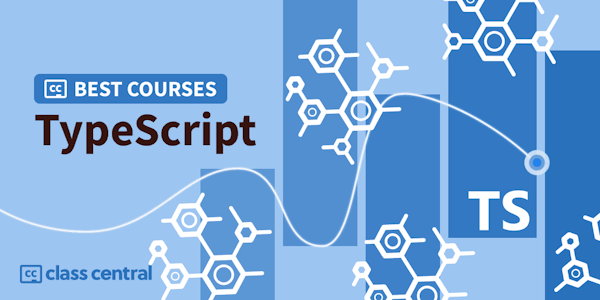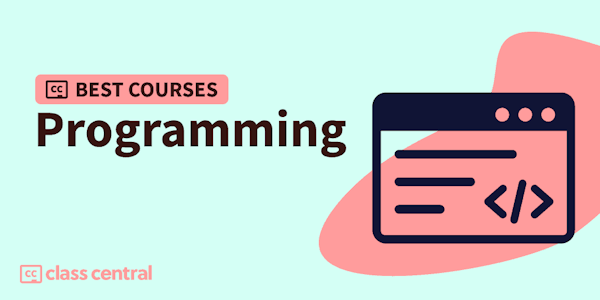What you'll learn:
- Learn and understand what TypeScript is and why TypeScript is so Popular
- Solve Challenges to Solidify Beginner to Advanced TypeScript Concepts
- Learn All the Advanced Features of TypeScript
- Learn How TypeScript Leverages Modern JavaScript
- Understand TypeScript Documentation and Source Code by Learning Advanced Types such as Type Queries, Conditional Types, Utility Types & Mapped Types
- Learn to Create TypeScript Modules and Master Modern Techniques
- Understand & Write Custom TypeScript Declaration Files
- Single-File Compilation with Webpack
Welcome to a Real-World TypeScript course!
I am extremely excited to present to you a complete guide to TypeScript. This course covers TypeScript from the ground up and covers all the little and complicated details of TypeScript.
TypeScript is a superset of JavaScript and makes writing JavaScript easier and more maintainable while keeping the code less bug prone. TypeScript introduces types, among other modern features, into the world of JavaScript and compiles to JavaScript before being used in production environments. One of the main issues with JavaScript that TypeScript solves is that the errors are going to be detected in the development environment, unlike JavaScript, which significantly improves performance and reduces time spent debugging applications.
TypeScript has seen a surge in popularity during the recent years and has become an integral part of frontend and backend web development. It is worth mentioning that TypeScript seamlessly integrates with modern web frameworks such as Angular, Vue and libraries such as React. TypeScript can also be integrated with JavaScript runtimes to create backend web applications.
The need of modern web for type safety and ease of scalability has made TypeScript an indispensable part of web development jobs and interviews. TypeScript's popularity is only going to increase in the coming years and right now is the best time to employ TypeScript into your project safely and effectively.
In this course, we are going to start at the basics of TypeScript and how primitive JavaScript data types integrate into the work of TypeScript. There is going to be challenges along the way to strengthen basic concepts.
After making sure you feel comfortable with the basics of TypeScript, we will kick things up a notch and talk about basic TypeScript types and from that point onward, we will cover TypeScript generics, type narrowing & widening, interfaces and more intermediate types such as index signatures, indexed access types, partial types and so much more.
Each of the major concepts of TypeScript will be followed by a complete section of challenges to solidify all the concepts and retain the knowledge for the long term.
At this point in the course, we will talk about Object-Oriented Programming in TypeScript and this section will be followed by the most advanced challenges of this course.
Now is the time to talk about more advanced TypeScript types. When learning a new technology, it is of utmost importance to read, understand and decipher the language's documentation and source. For this reason, I have included several sections where I am going to teach you how to read TypeScript documentation and source code as well as TypeScript declarations files. Specifically, we will cover type queries, conditional types, utility types and mapped types.
A main idea behind the creation of TypeScript was to utilize this powerful language for medium to large scale applications. Applications at this scale cannot be written in a single file and here is where TypeScript modules come into the picture. TypeScript modules allow us to break a large project into several files and directories and make the maintainability and scalability of the project supremely easy. We will cover exporting, importing, re-exporting, barrel files, module resolution and so many more advanced and real-world techniques that are used on a daily basis in TypeScript projects.
Since TypeScript cannot be rendered directly by the browser, we will have to use some sort of third-party module bundler to compile a TypeScript to a web application and for this purpose we will cover single file compilation using webpack.
Major TypeScript Concepts Covered in this Course:
TypeScript Setup
TypeScript Configuration
Primitive Types
Any Type
Array Type
Tuple Type
Enum Type
Conditionals
Loops
Functions
Void Type
Never Type
Nullability
Type Aliases
Type Casting
Union Type
Literal Type
Intersection Type
Function Type
Object Type
Generic Arrays
Generic Functions
Generic Objects
Generic Sets
Type Narrowing
Type Guards
Type Widening
Interface Type
Unknown Type
Index Signatures
Indexed Access Types
Partial Type
Read-only Types
OOP
Type Queries
Conditional Types
Utility Types
Mapped Types
TypeScript Modules
TypeScript Integration with Webpack
ENROLL RIGHT NOW AND LEARN THE SKILLS OF THE FUTURE!






